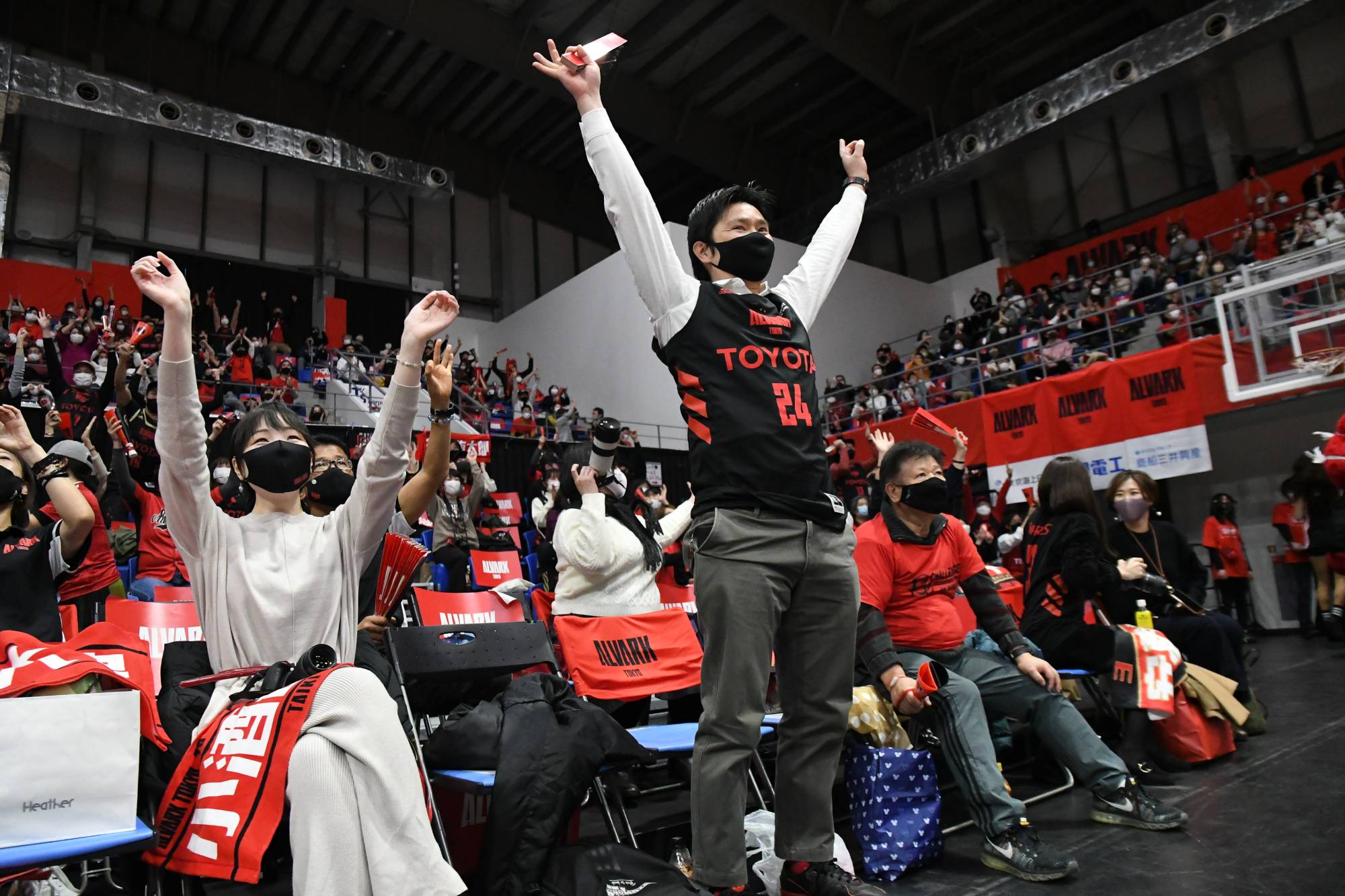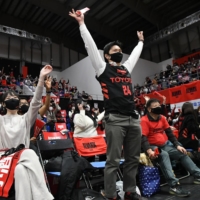Prime Minister Yoshihide Suga’s declaration of a second state of emergency in Tokyo as well as neighboring Kanagawa, Chiba and Saitama prefectures on Thursday could substantially impact sporting events in Japan.
The Japan Sumo Association will stick to hosting the New Year Grand Sumo Tournament as scheduled beginning Sunday at Tokyo’s Ryogoku Kokugikan. After initially limiting ticket sales to 5,000 on each day, the JSA cut off sales on Wednesday with only the first and last days having sold out.
The sumo world was rocked by Tuesday’s announcement that yokozuna Hakuho had tested positive for COVID-19. The JSA decided to proceed with the first basho of 2021, sending polymerase chain reaction tests to all of its wrestlers and officials on Thursday.
Japanese rugby will take a somewhat more controversial position, at least for the next couple weeks. The Top League announced that it would not curtail attendance for its first two rounds of games as many tickets have already been sold, including more than 20,000 tickets for the Jan. 16 contest at the new National Stadium between the Toshiba Brave Lupus and NTT Communications Shining Arcs.
The Top League plans to obey the 5,000 spectator limit from its third week.
Rugby’s national collegiate championship game between Waseda University and Tenri University will also proceed with up to 17,000 spectators — all of whom have already acquired tickets — in the National Stadium stands on Monday.
Japan Rugby Football Union Chairman Kensuke Iwabuchi said during an online briefing on Friday that the federation received permission to welcome fans in excess of the government-imposed cap because tickets had already been sold. He added that the federation would redouble its efforts to prepare anti-infection protocols and countermeasures in order to ensure the safety of players, team officials and fans.
“I understand that there are various different opinions on this,” Iwabuchi said. “Yet considering the social and cultural values for sports, I think sporting competitions are not non-essential and non-urgent. Our perspective is that sports are being played in Europe and the United States as well. And despite the fact that we are under the state of emergency, we would like to act properly so that we don’t burden the medical system."
Iwabuchi revealed that he sought input from players on whether or not they wanted to play given the risky environment. While some showed mixed feelings, others insisted they wanted to complete the Top League’s final season before the planned 2022 launch of a new domestic league.
“We as the rugby federation overcame difficulties as ‘One Team’ to make the (Japan-hosted) 2019 Rugby World Cup successful, and we would like to overcome things by cooperating with all the people associated with the sport,” Iwabuchi said.
The B. League also plans to continue to play the remainder of the 2020-21 pro basketball season, including next weekend’s All-Star Game in Mito, Ibaraki Prefecture.
But as of Friday morning, league officials said they were perplexed over the lack of guidance from the Japan Sports Agency on matters beyond the new attendance caps.
“The government says that events selling food and beverages have to stop their operations by 8 p.m.,” B. League spokesperson Masahiko Masuda said. “Do we have to completely stop playing by that time as well?”

Japan is scheduled to host 10 Group B games of FIBA Asia Cup qualifying from Feb. 18-22, but Masuda suggested that the event could be called off due to the involvement of teams from overseas. The Akatsuki Five competed against Taiwan last February in its only qualifier thus far.
The coronavirus forced both the Top League and B. League to cancel the remainder of their 2019-20 seasons last spring. The country declared its first state of emergency for seven prefectures in April, later expanding it nationwide.
Meanwhile, the Women’s Japan Basketball League announced that it would postpone 12 games in Tokyo and Shizuoka scheduled between Saturday and Jan. 16. The league said those contests may not be made up if the spread of the virus is not controlled.
Likewise, volleyball’s V. League will postpone its men’s and women’s competitions between Friday and Monday. The league said it would decide what to do with the remainder of the season in the coming days.
The Japan Racing Association will host races at Chiba Prefecture's Nakayama Racecourse between Saturday and Monday without spectators.
According to reports, Rikako Ikee, the star swimmer who returned to the pool last year 18 months after a leukemia diagnosis, has decided to not compete at Sunday’s meet hosted by the Tokyo Swimming Association.
The J. League and Nippon Professional Baseball are scheduled to kick off their 2021 campaigns in late February and late March, respectively. But a continued rise in COVID-19 cases could affect their seasons. The two leagues’ joint coronavirus task force, which helped form safety guidelines that allowed both leagues to complete their 2020 seasons, will meet for the first time this year on Tuesday.


















With your current subscription plan you can comment on stories. However, before writing your first comment, please create a display name in the Profile section of your subscriber account page.